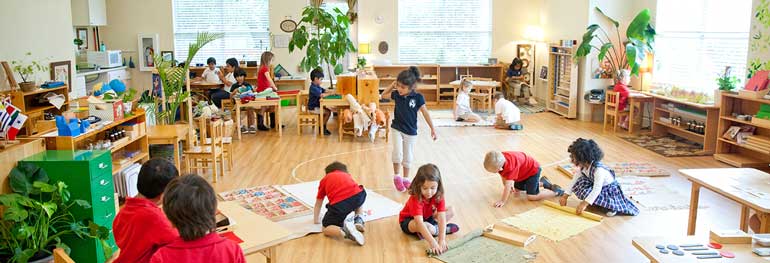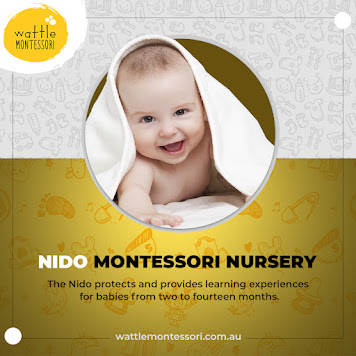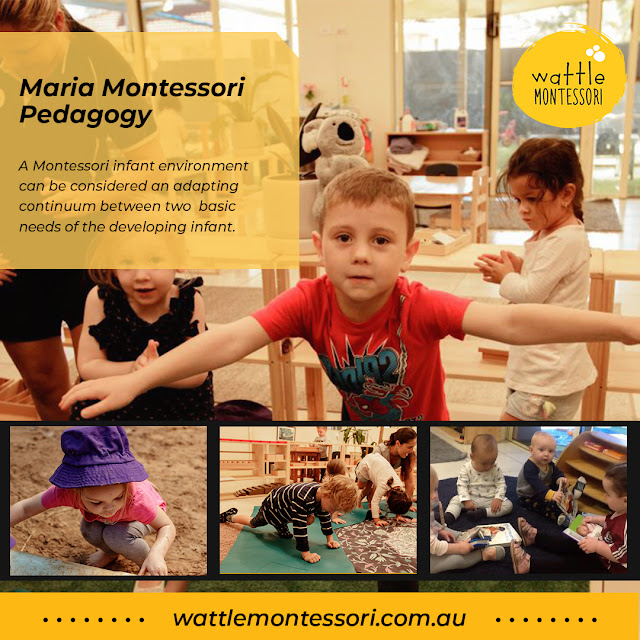5 Child Capabilities and Behaviors that a Child Care Center Should Consider
Researchers studying intellectual abilities have shown that the growing mind is hectic and perceptive even at a young age. Children, for example, develop ideas from explaining the behaviour of people and the activities of things as early as infancy. Knowing what science has uncovered about the cognitive development of newborns and early children can assist Child Care Center who deal with children better assist their learning.
What goes on in the brain of newborns and little children is far more intricate and intelligent than their outward behaviour suggests. Montessori Early Education Services provide education that occurs on two levels: visible and apparent knowledge growth — language acquisition, for example, and learning about how objects operate – and implicit learning development, which is more difficult to notice.
Many impressively smart and intelligent things in young children's heads aren't visible in their actions. As a result, young children's cognitive capacities are frequently underestimated. A recent study has revealed that children have specific talents even at a young age:
Have a Theory of Mind:
Children can reason about and comprehend other people's mental life and intents. When 1-year-olds are confronted with something or someone unknown, for example, they glance at their moms to read her expression to assess whether the unknown person or object is benign or threatening. When babies as young as 14 months old notice an adult attempting to reach for an object, they will stop playing and crawl over to the adult and deliver the thing to them.
Have Theories of Numbers:
Even infants appear to comprehend something that resembles addition and subtraction instinctively, and they are astonished when anything goes against these rules. When babies see one object that is subsequently screened from view and later realises that another entity has been placed behind the screen, they are astonished when the screen is lifted, and just one thing is visible. Early Childhood Education Services can use this capability to develop numerical intelligence among children.
Can Make Inferences About Cause and Effect:
Children as young as eight months of age begin to acquire cause-and-effect thinking skills2. Causation, or cause-and-effect reasoning, helps us to infer and reason about events that occur around us. Causality helps us grasp anything from basic things like "If I don't water the plants, they'll die" to more complex things like other people's motives and acts. When toddlers comprehend cause and effect, they also learn to understand mechanism activity, allowing them to comprehend causal links.
Are Sensitive to the Statistical Probability of Events:
We begin employing probability to generate predictions at a very young age, as evidenced by our capacity to do so without instruction or experience. The authors claim that an infant's statistical intuition is similar to that of a scientist, bolstering the claim that "children are scientists" made by sure cognitive scientists. This shows that newborns' implicit theory of mind knowledge — in this example, the idea that a person may choose items consciously – would defeat their statistical probability reasoning.
Are Sensitive to Teaching Cues:
Because adults convey their intention to teach something, children pay careful attention to social events that are likely to reflect learning opportunities as early as infancy. When people establish eye contact with newborns, call their names, and point for their benefit, newborns know that someone is teaching them, and this awareness can influence how and what they learn.
These study findings must become part of the basic knowledge that guides how Child Care Center in Coomera and caregivers promote children's development. Because educators in Wattle Montessori does not stereotype the belief that youngsters are "concrete" thinkers who couldn't deal with abstraction or reason hypothetically, they focused on easy, descriptive exercises and missed opportunities to examine cause and effect, number theories, and statistical probability.




Comments
Post a Comment